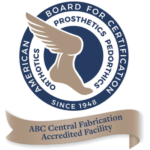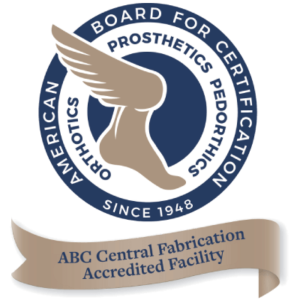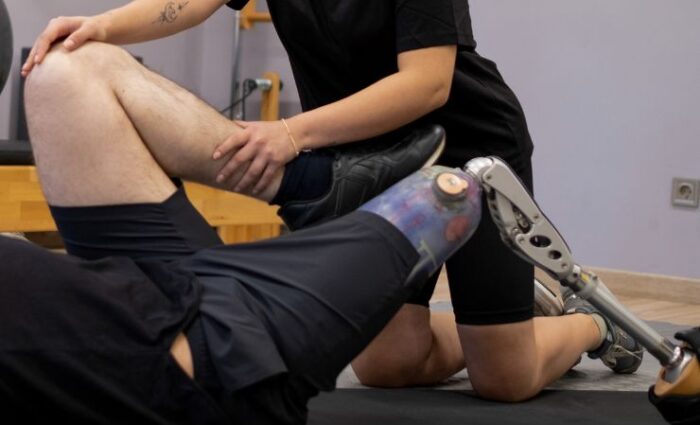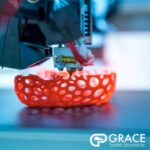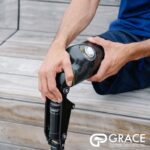The Role of Physical Therapy in Prosthetic Rehabilitation
For those who rely on prosthetics, the journey to mobility doesn’t end with the fitting of a new limb. Physical therapy plays a critical role in prosthetic rehabilitation, helping patients adapt, recover, and gain confidence in their new abilities. At Grace Prosthetic Fabrication, we understand that successful outcomes come from a collaborative approach between patients, physical therapists, and medical professionals. In this blog, we’ll explore how physical therapy supports each step of the rehabilitation process, enhancing the benefits of custom prosthetics for patients seeking to restore their independence and quality of life.
Why Physical Therapy Matters in Prosthetic Rehabilitation
Physical therapy is a vital part of the rehabilitation journey for individuals transitioning to life with a prosthetic. While a well-crafted prosthesis, such as those provided by Grace Prosthetic Fabrication, can deliver comfort and functionality, it is physical therapy that teaches patients how to maximize these benefits. The therapy process involves learning how to properly use, maintain, and adjust to the prosthetic device, which is essential for achieving long-term success.
Physical therapists work closely with patients to improve their strength, balance, and coordination. They guide patients through exercises designed to rebuild muscles and restore movement patterns that may have been disrupted due to limb loss. By enhancing mobility and reducing discomfort, physical therapy empowers patients to integrate their custom prosthetic into daily life with greater ease.
Steps in Prosthetic Rehabilitation: A Collaborative Process
Prosthetic rehabilitation typically follows a series of stages, each tailored to the patient’s unique needs. Here’s how the process unfolds and how physical therapy adds value at each stage:
- Pre-Operative and Pre-Prosthetic Therapy
For patients anticipating amputation or adjusting to recent limb loss, pre-operative therapy can set a strong foundation for rehabilitation. Physical therapists begin by educating patients about exercises to strengthen residual muscles and maintain joint flexibility. This preparation helps ensure a smoother transition once a custom prosthetic is fitted, enhancing patient recovery. - Post-Surgical Rehabilitation
After surgery, physical therapy focuses on managing pain and improving the flexibility and strength of the residual limb. Therapists also work with patients to desensitize the residual limb, which is crucial for proper prosthetic fitting. Through this stage, patients gain the physical and mental resilience needed to adapt to their prosthetic. - Prosthetic Training
Once a patient is fitted with a prosthetic from Grace Prosthetic Fabrication, the next step is learning to use it effectively. During prosthetic training, physical therapists guide patients through the basics of wearing and controlling the device, helping them understand the movements and adjustments needed for optimal function. This stage includes gait training, which helps patients walk comfortably and confidently, addressing issues such as balance, posture, and limb alignment. - Advanced Functional Training
As patients progress, physical therapy can introduce more complex exercises to improve specific skills related to their lifestyle or occupation. Whether it’s climbing stairs, jogging, or engaging in recreational activities, physical therapy ensures patients are not only functional but can enjoy a fulfilling, active life. Advanced training also emphasizes proper form to avoid injuries or discomfort that can arise from repetitive movement or strain. - Long-Term Support and Monitoring
Prosthetic rehabilitation doesn’t stop once initial training is complete. Physical therapists continue to monitor patients, adjusting therapy plans as needed to address any changes in health, weight, or activity level. Ongoing support helps patients maintain their independence, ensuring they get the best possible outcomes from their custom prosthetic device.
Key Benefits of Physical Therapy for Prosthetic Users
The integration of physical therapy in prosthetic rehabilitation offers numerous benefits that positively impact patient recovery and long-term satisfaction. Here are some of the core advantages:
- Enhanced Mobility and Strength
Physical therapy builds the necessary muscle groups to support a prosthetic, making it easier for patients to perform daily activities without pain or discomfort. Targeted exercises strengthen the residual limb and core, which are essential for stable movement and balance. - Improved Balance and Coordination
Adapting to a new prosthetic can throw off a patient’s sense of balance. Physical therapy introduces exercises that improve coordination, preventing falls and promoting a smoother, more natural gait. This is especially beneficial for lower limb amputees learning to walk confidently on various surfaces. - Pain Reduction
Phantom limb pain and residual limb discomfort are common challenges. Physical therapy helps manage these symptoms through specific exercises, massage techniques, and desensitization exercises. Pain management is critical for patient recovery, as reduced discomfort allows patients to focus on mastering their prosthetic device. - Boosted Confidence and Independence
One of the most impactful benefits of physical therapy is the boost in confidence it provides. With guided support, patients gain the skills and assurance needed to use their prosthetic in public, engage in social activities, and pursue their interests without fear or hesitation. For many, this is a transformative step toward reclaiming independence.
How Grace Prosthetic Fabrication Supports Physical Therapy Efforts
At Grace Prosthetic Fabrication, we are committed to creating custom prosthetics that fit seamlessly into each patient’s rehabilitation journey. Our high-quality materials and cutting-edge designs are crafted to support comfort, durability, and functionality, allowing physical therapists to focus on skill development rather than managing issues with the prosthetic itself. By collaborating with physical therapists and providing guidance on device maintenance, we ensure that patients receive a holistic experience that prioritizes their health and recovery.
Our custom prosthetics are also designed with adaptability in mind, allowing adjustments as patients progress in their rehabilitation. This flexibility is crucial in achieving successful outcomes, as it enables physical therapists to make fine-tuned adjustments that cater to each patient’s evolving needs.
Patient Success Stories: Realizing the Power of Physical Therapy in Rehabilitation
Countless patients have experienced life-changing improvements through the combination of physical therapy and custom prosthetics. Stories from our patients underscore the profound impact of a supportive rehabilitation team. Patients who have worked with skilled physical therapists to integrate their prosthetics often report higher satisfaction, greater independence, and an improved quality of life. The dedication and expertise of physical therapists, coupled with the precision engineering of Grace Prosthetic Fabrication’s devices, create an ideal environment for success.
Contact Grace Prosthetic Fabrication for Custom Prosthetic Fabrication
Prosthetic rehabilitation is a journey that extends beyond the fitting of a device. Physical therapy serves as a critical partner in this process, empowering patients to achieve a balanced, active life with their prosthetic. At Grace Prosthetic Fabrication, we take pride in supporting physical therapists and medical professionals by providing top-quality custom prosthetics that enhance patient recovery. Together, we’re working to ensure that every patient has the opportunity to regain mobility, confidence, and independence.
For medical professionals and patients alike, understanding the role of physical therapy in prosthetic rehabilitation underscores the importance of a collaborative approach. With Grace Prosthetic Fabrication and dedicated physical therapy, patients can experience a recovery journey that is as seamless and rewarding as possible.

